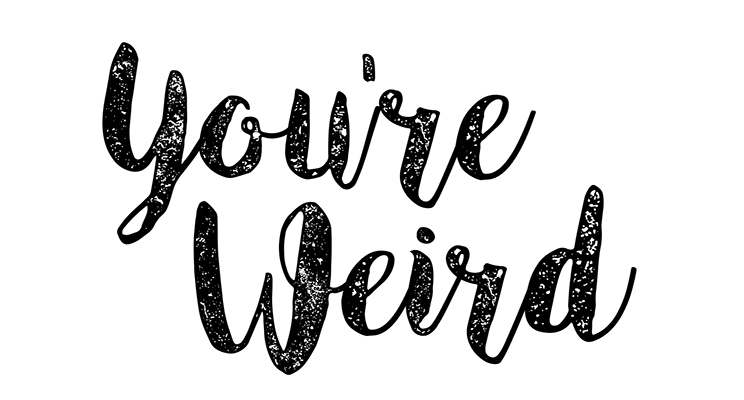This is my first of many stories of stigma, biases and unnecessary barriers around invisible health challenges. This story is perhaps a combination of surprising and funny.
An Unremarkable, Normal Day
I was 18 years old and had gone to the mall with a few family members. It was the holidays, and everything felt so festive. The perfect setting for an unremarkable time, other than the warm memories of enjoying time with family.
A Simple Fall
I had lagged behind family looking at clothing. As I walked out of JCPenny’s, I fell. Not a full-out tumble, big scene, call the ambulance kind of fall. My left knee simply buckled, and I quickly dropped to the floor in one quick movement.
Almost as quickly, I was “working” on standing up. I say “working” on because I had quite a bit of weakness in that leg, as well as pain upon standing, so it took an effort. Especially as compared to expectations of an otherwise healthy and fit-looking 18-year-old.

A Total Stranger ‘Offers’ His Input
To my surprise, while I was “working” on standing, a man who was a total stranger to me rushed towards me, leaned in mere inches from my face, and blurted “YOU’RE WEIRD!!” and stormed off.
What!? I can picture him to this day. Narrow face, long nose, squinted eyes, and dark curly hair.
As I continued to stand, I asked myself, “Did that really just happen?”
Life Goes On, Stigma Remains
I finished standing and continued on as though nothing had happened. But that day was one more time I was taught that I was different. As my knee issues worsened over the next several years, I worked continually to try to hide my challenges, the pain, and even my inability to go up steps. I learned to walk behind others to try to hide my lagging leg. I learned to laugh when I fell. It made others feel better. I’ll share more on this topic in other stories, but you get the point.
The actions and words we choose, even in the smallest of situations, can have great consequences.
You do have an impact. Every single day. It’s up to you to choose what kind of impact that will be.
Choose wisely.
Lessons Shared
Lesson for all: When given the opportunity, choose to offer a compassionate hand over a rude remark. Bonus points for thinking before you speak.
Lesson for individuals with invisible illness or health challenges: Realize the other person’s response likely has nothing to do with you. Do your best to offer compassion and awareness around their lack of awareness, and always, practice self-compassion.
Stayed tuned for more stories of stigma, biases and barriers. In the meantime, here is a related article: Is Stigma Around Autoimmune Disease or Chronic Pain Holding You Back?
Signup for BalanceUP® Community News! It’s packed with creative strategies for work, life and well-being that you can out to use now.


Comments are closed.